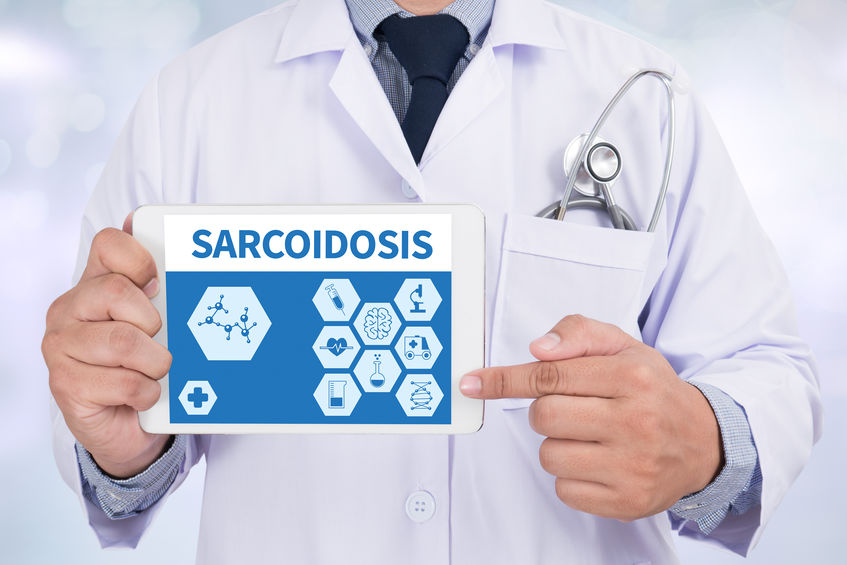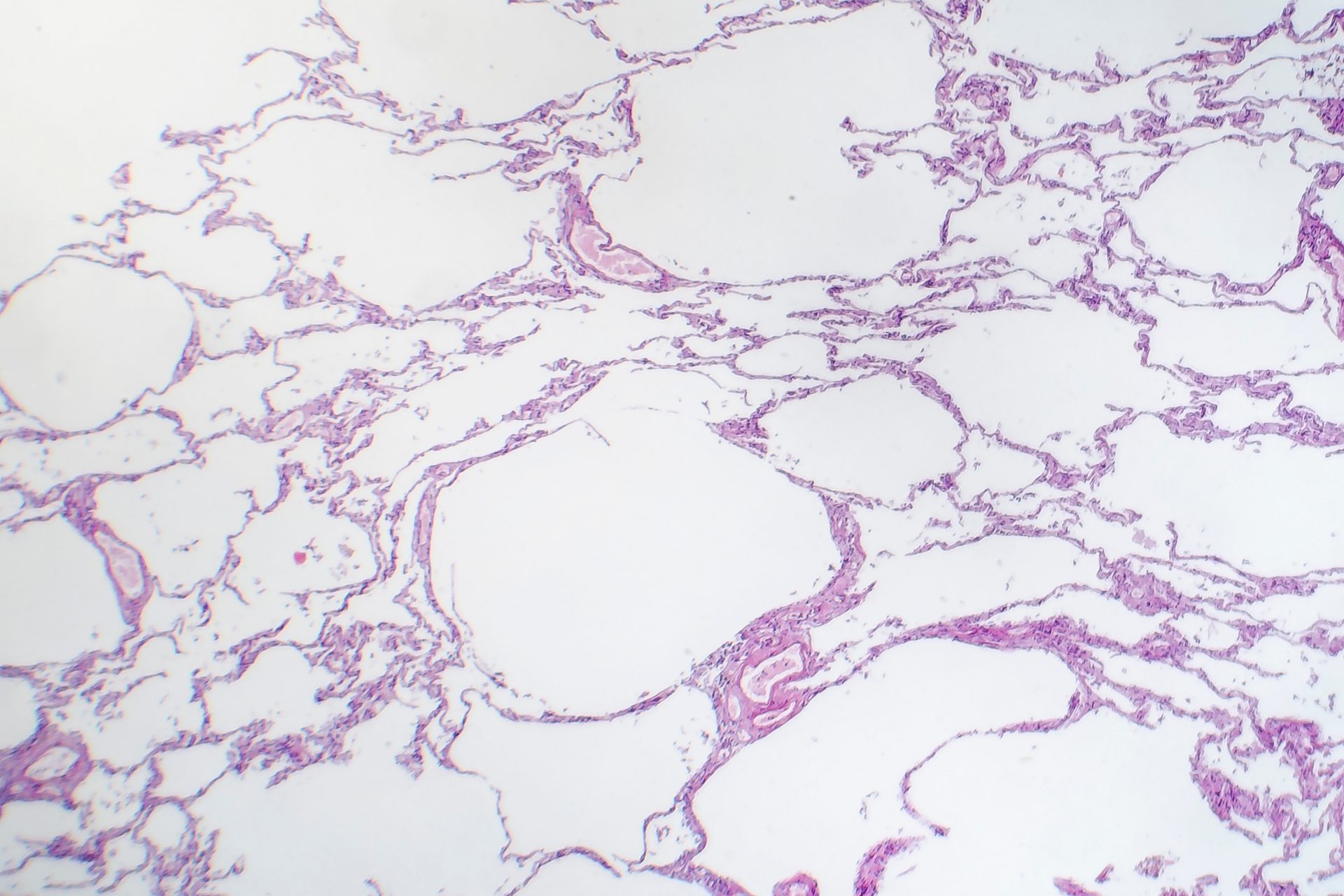Diagnoses
Sarcoidosis commonly affects the lymph nodes in the chest and the lungs themselves. There might be no symptoms – it might just be found incidentally on a chest x-ray or CT scan – or it might cause breathlessness or cough. Sometimes, when it starts acutely, there can be painful swollen joints – especially ankles and knees – along with fatigue and malaise.
The sarcoid inflammation can affect many other tissues including skin, eyes, joints, and internal organs like liver, spleen, kidneys, heart and others. Symptoms can arise from the inflammation itself (eg fatigue, fever, sweats) or from the individual organs involved.
There is not a specific test for sarcoidosis and the condition is recognised from the characteristic clinical picture, x-ray and CT scan appearances, and blood results. It might be necessary to support the diagnosis with a tissue biopsy looking for granulomas and excluding other conditions.
Immunosuppressive drugs like steroids and others might be needed. However, many people do not need treatment and will simply be kept under observation in case treatment does become necessary.


